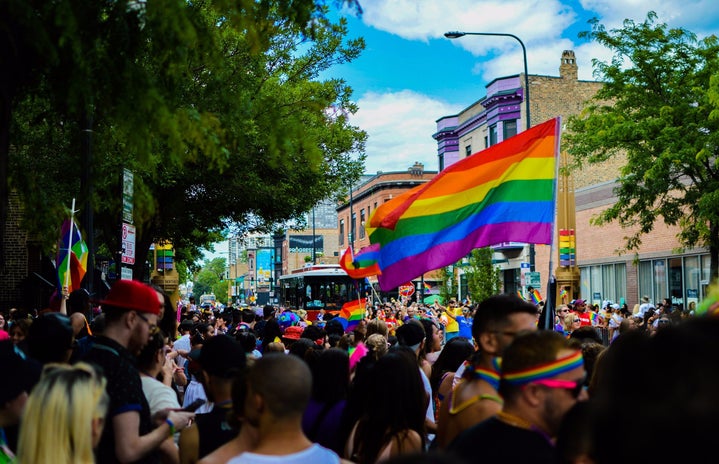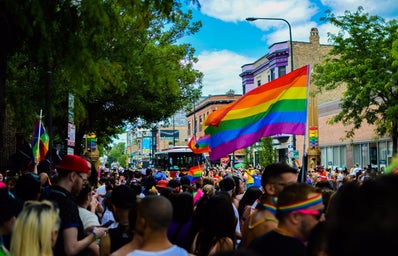Edited by Janani Mahadevan
During Pride Month in June of 2020, Menaka Guruswamy and Arundhati Katju— the lawyer couple who were part of the team that argued for the decriminalisation of Section 377 in 2018— announced their support for The Marriage Project, an organisation that fights for the recognition of gay marriage in India. Towards the beginning of October, they became part of a petition filed in the Supreme Court for the same. This news was met with mixed reactions from the Indian queer community. While a majority of cis, Savarna, upper/upper-middle class queer people loudly proclaimed their support for same-sex marriage, many who belong to more marginalised sections of the queer community were against it.
The first contention those against same-sex marriage have is the fact that this legislation being projected as the next big fight for queer rights, as it has been in many countries around the world. However, in India, this is not necessarily consistent with the lived realities of many Indian queer people. The regressive trans bill that strips trans people of their basic personhood in ways that many cis people will never experience, was passed last year. Additionally, Dalit, Bahujan, Muslim, Adivasi queer people or those living in rural areas experience far more marginalisation and rejection than cis, Savarna queer people in urban areas (the primary people agitating for marriage rights) do. As such, it does not make sense to them that so much time and so many of the combined resources of queer organisations are being used to fight for marriage equality when there are so many battles for equality left.
Additionally, marriage equality is not actually linked to greater acceptance for queer people. In many countries where marriage equality exists, such as the US, UK, France, and Australia, queer people have little to no legal protection and conversion therapy is still legal.
The agitation against legalising gay marriage is also against the predominance of the institution of marriage itself. Marriage is a largely Brahmanical, patriarchal construct created for economic convenience and shaped by systemic ideas of power relations. Attempting to legitimate same-sex marriage doesn’t destroy the conditions that created its rejection. Same-sex marriage is always understood as ‘same-sex’ marriage or ‘gay marriage’. It is never simply marriage. This is to say, it is always something that appears to go even further against an established norm. Even in countries where gay marriage is legal, we see the pigeonholing of queer people into traditional cisgender, heteronormative processes during the wedding in order to try and fit tradition, or they must veer off the path of tradition completely in ways that are always understood as subversive. Can same-sex marriage ever truly be normative when there is no room within the norms for non-heterosexual unions? Tradition takes far too long to change and it would be unrealistic to expect it to expand and accommodate queer people even within the next decade or two. Besides, why would queer people want to be part of an institution that continues to cause them harm?
Another contention lies in the compulsorily monogamous nature of marriage, something that is not exactly representative of large parts of the queer community and the way they form relationships.
Yet another problem with the institution of marriage is the fact that it is understood as the only way legitimacy is conferred onto a relationship. For instance, a child is an illegitimate child if their parents are not married and only legitimate if they are. Such a rigid process takes away from the many ways queer people have worked against marriage historically and all the ways they have found of legitimising their own relationships outside of the institution of marriage.
Another problem is that ‘same-sex’ marriage or gay marriage is understood as a largely binary structure. Marriage becomes a relationship either between a man and a woman, a man and a man, or a woman and a woman. This sort of classification leaves out non-binary people and makes the structure of the gender binary even more rigid than it already is, not allowing for the fluidity of people’s identities.
If same-sex marriage were to be legalised in India, it would force queer people to abandon their own counter-normative traditions if they want to be seen as legitimate. Such a form of equality that has no flexibility and where historically invisible groups are simply assimilated into the fold of the oppressor is always ‘equality’ at the terms of the oppressor. It is not true equality and therefore not worth settling for.
It is not that queer couples should not have the right to marry if they want to, but that even the idea of gay marriage has some form of privilege attached to it as it leaves out so many of the more vulnerable and marginalised members of the queer community. The legitimation of gay marriage would eventually lead to the structuring of the queer community by caste and more traditional norms even more than it already is, further detracting from equality. There are many battles to fight for equality in India and this battle for marriage equality may, at this juncture, not be the most important or inclusive one.



